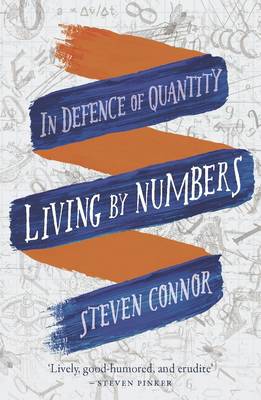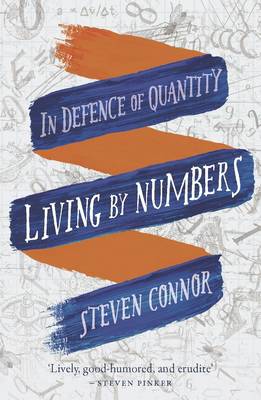
Bedankt voor het vertrouwen het afgelopen jaar! Om jou te bedanken bieden we GRATIS verzending (in België) aan op alles gedurende de hele maand januari.
- Afhalen na 1 uur in een winkel met voorraad
- Gratis thuislevering in België vanaf € 30
- Ruim aanbod met 7 miljoen producten
Bedankt voor het vertrouwen het afgelopen jaar! Om jou te bedanken bieden we GRATIS verzending (in België) aan op alles gedurende de hele maand januari.
- Afhalen na 1 uur in een winkel met voorraad
- Gratis thuislevering in België vanaf € 30
- Ruim aanbod met 7 miljoen producten
Zoeken
Omschrijving
How do we really think about the world? We may use words to tell stories about it or draw pictures to represent it, but one thing we do far more than either of those is make calculations of the things that are in it--and to do that we use numbers. Numbers give shape and texture to almost everything we feel, say, dream, and do, a fact that Steven Connor explores in this qualitative assessment of the quantifiable. Looking at how numbers play a part in nearly every aspect of our lives, he offers a fascinating portrait of the world as a world of numbers.
Connor explores a host of thought-provoking aspects of our numerical existence. He looks at the unexpected oddities that shape the loneliest number--the number one. He looks at counting as a human phenomenon and the ways we negotiate crowds, swarms, and multitudes. He demonstrates the work of calculation as it lies at the heart of poetry, jokes, painting, and music. He shows how we use numbers to adjust to uncertainty and chance and how they help us visualize the world in diagrammatic ways, and he unveils how numbers even help us think about death. Altogether, Connor brings into relief an aspect of our lives so ubiquitous that we often can't see it, unveiling a rich new way of thinking about our existence.
Connor explores a host of thought-provoking aspects of our numerical existence. He looks at the unexpected oddities that shape the loneliest number--the number one. He looks at counting as a human phenomenon and the ways we negotiate crowds, swarms, and multitudes. He demonstrates the work of calculation as it lies at the heart of poetry, jokes, painting, and music. He shows how we use numbers to adjust to uncertainty and chance and how they help us visualize the world in diagrammatic ways, and he unveils how numbers even help us think about death. Altogether, Connor brings into relief an aspect of our lives so ubiquitous that we often can't see it, unveiling a rich new way of thinking about our existence.
Specificaties
Betrokkenen
- Auteur(s):
- Uitgeverij:
Inhoud
- Aantal bladzijden:
- 296
- Taal:
- Engels
Eigenschappen
- Productcode (EAN):
- 9781780238258
- Verschijningsdatum:
- 15/11/2017
- Uitvoering:
- Paperback
- Formaat:
- Trade paperback (VS)
- Afmetingen:
- 130 mm x 196 mm
- Gewicht:
- 294 g

Alleen bij Standaard Boekhandel
+ 27 punten op je klantenkaart van Standaard Boekhandel
Beoordelingen
We publiceren alleen reviews die voldoen aan de voorwaarden voor reviews. Bekijk onze voorwaarden voor reviews.









